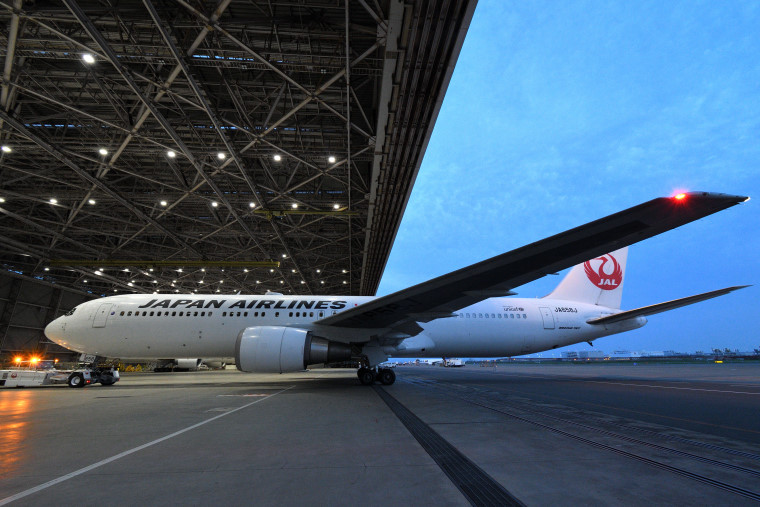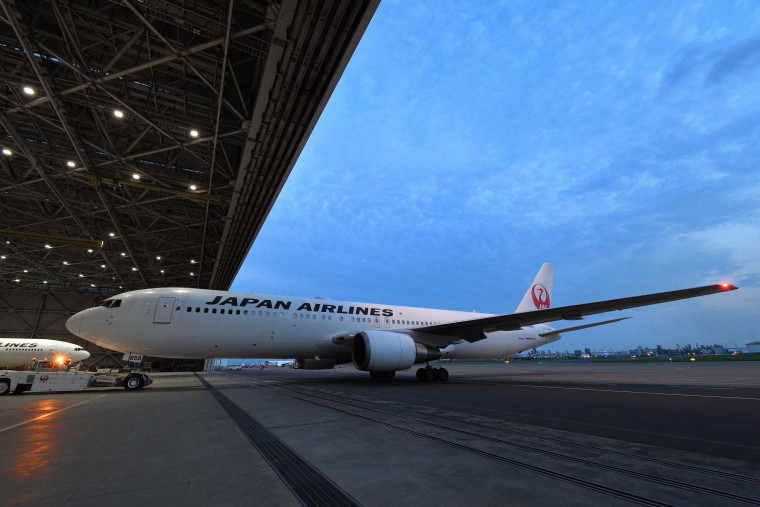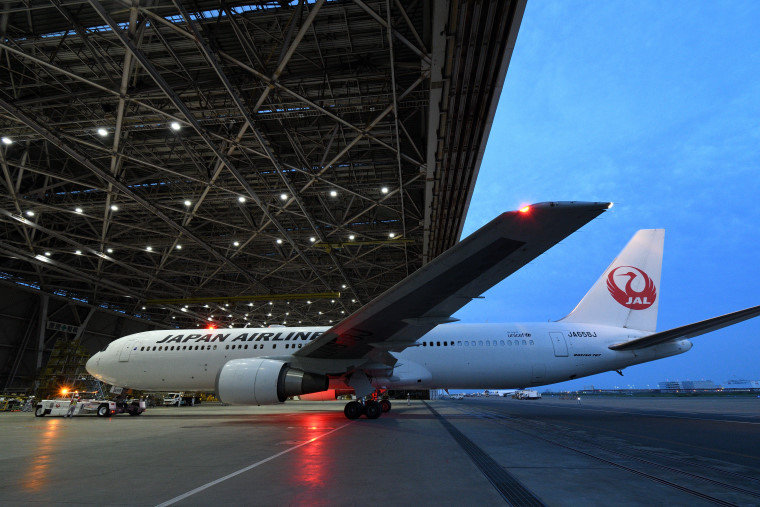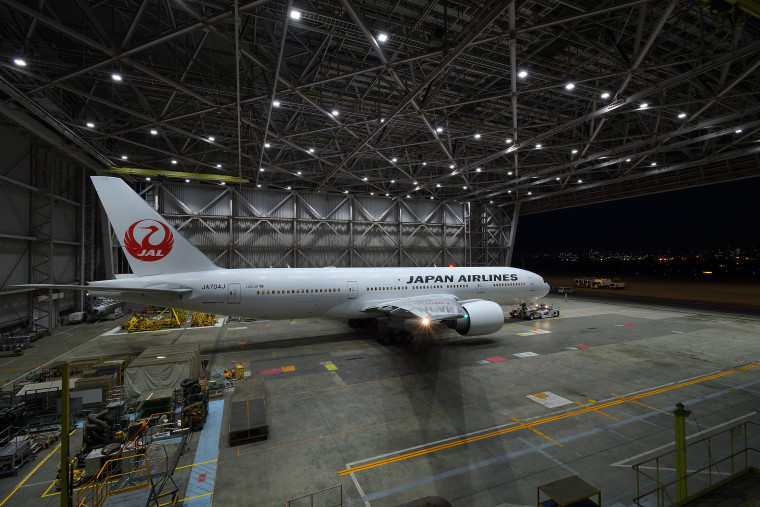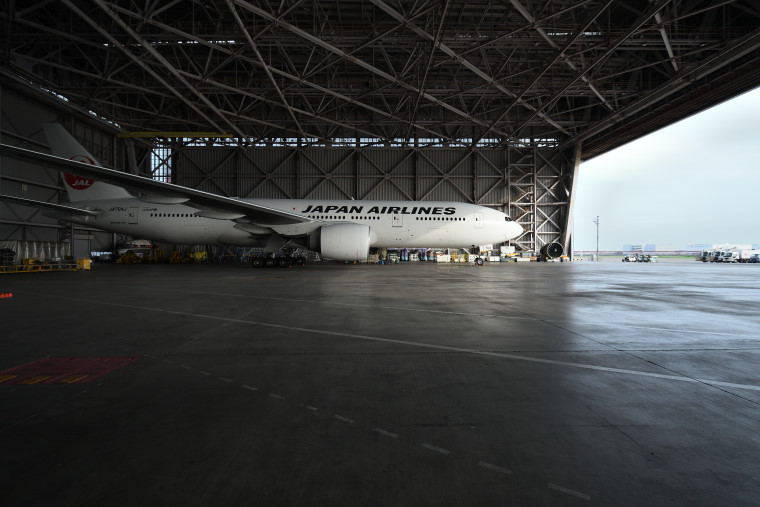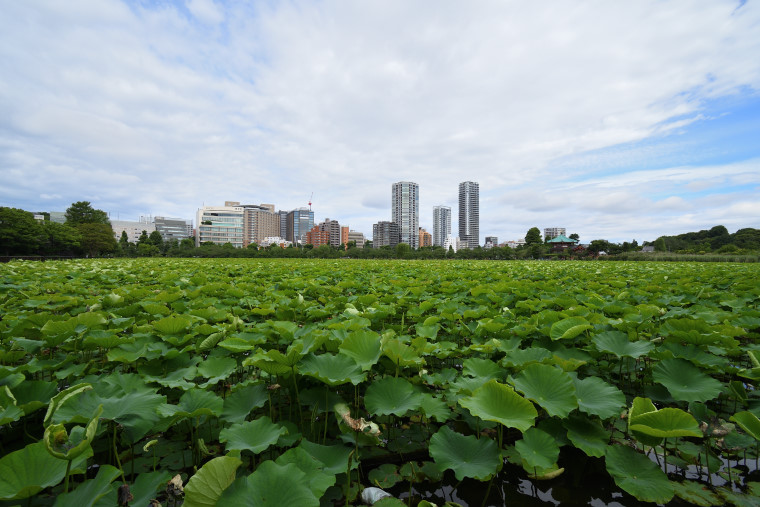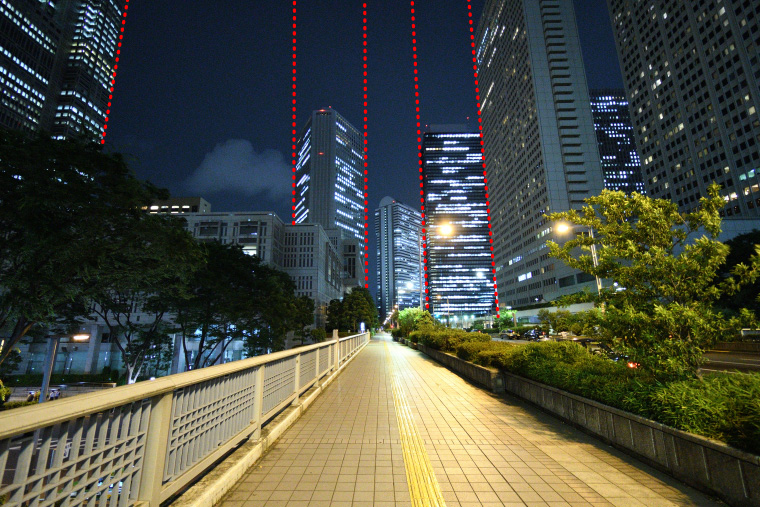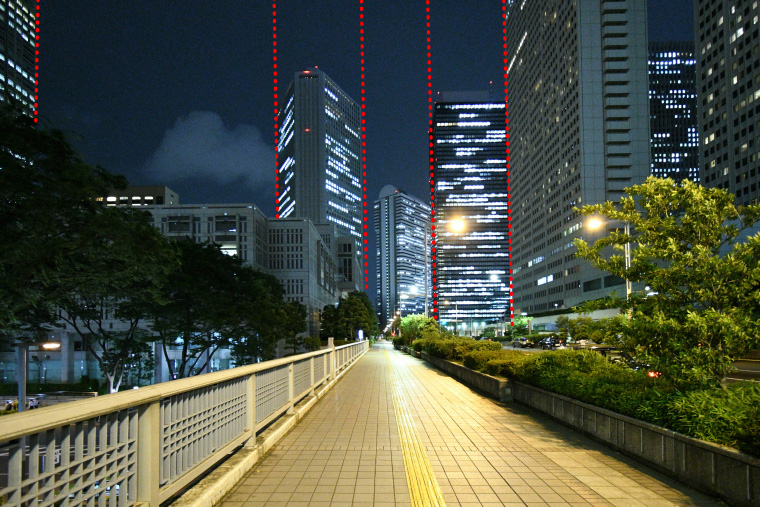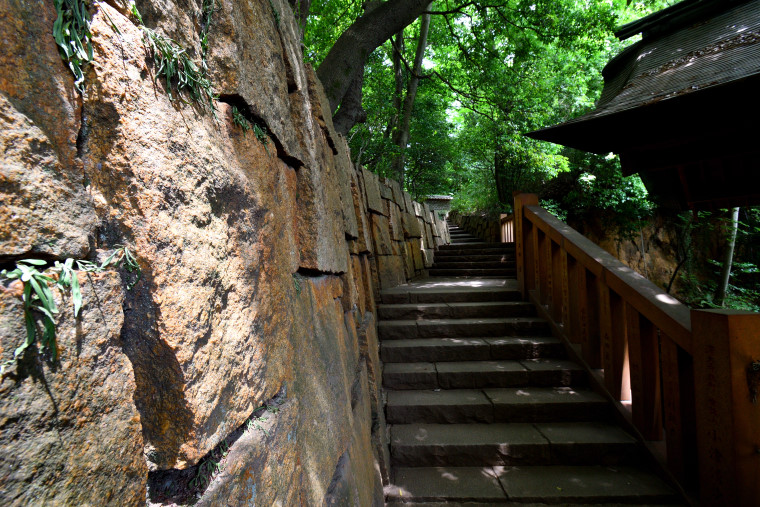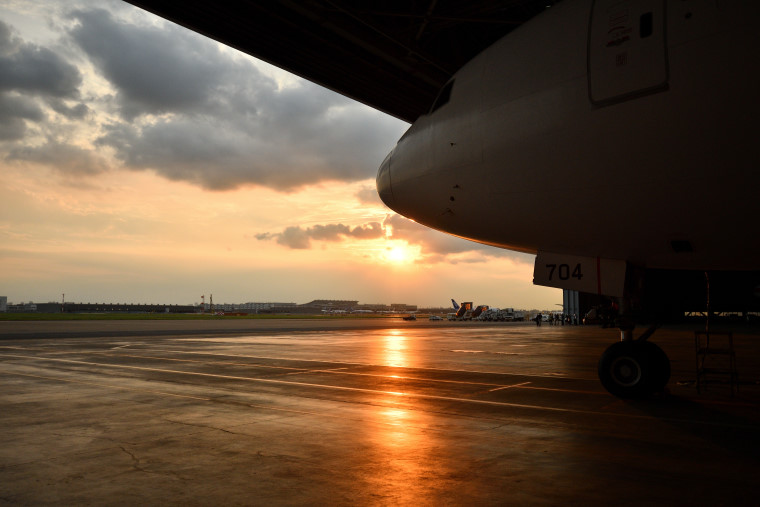Using Wide-Angle Zoom Lenses
I photographed some airplanes and landscapes using the AF‑P DX NIKKOR 10–20mm
f/4.5–5.6G VR, an extremely compact lens that nevertheless covers the ultra-wide
range. Mounted on a camera with a full-size image sensor, it has a focal length equivalent
to 15–30 mm, covering everything from ultra-wide to wide-angle for a view
wider than can be captured by the human eye. You’ll need to consider the handling
of both subject and background when shooting with this lens.
Photos and Text by KEN GOSHIMA (GOSHIMA Kentarō)
Aircraft and Hangers
I photographed a plane entering a hangar at Haneda Airport. Because I wanted to capture
both the plane and the hangar without blurring the background, I used a tripod and
shot at ISO 2000. Shooting at ultra-wide angles increases subject distortion, but
for this shot I tilted the camera up while keeping the aircraft horizontal with the
intent of ensuring that the plane would not be distorted more than necessary. The
aircraft was moving from right to left, and I timed the shot so that its shape would
perfectly balance with that of the hangar.
Examples 2 and 3 were shot
before and after Example 1. Whereas in Example 1 the plane is perpendicular to the
camera, in these examples it is at an angle. As a result, Example 2 gives more space
to the sky while Example 3 emphasizes the hangar. Example 3 is also synchronized with
the flash of a navigation light that adds red glow for a showy effect.
Example 4: I photographed a plane ready to leave the hangar. I climbed the catwalk
almost to the level of the tail and took the shot looking down at the plane. This
let me align the horizontals and verticals to balance the floor and ceiling with the
aircraft positioned in the center of the frame. Consequently the walls of the hanger
are plumb and distortion is kept to a minimum. The ultra-wide focal length of 10 mm
makes the wings seem slightly larger, but this only adds power to the aircraft’s
form.
Example 5: For this shot I stood on the floor and kept the camera
plumb and level. Because photograph was taken from eye level without tilting the camera
upward, the walls are plumb but the floor takes up more of the frame. The floor’s
share of the frame can be adjusted by, for example, taking the photo from a higher
vantage point or tilting the camera upward.
Landscapes
A shot of Shinobazu Pond taken at the maximum angle of 10 mm. I paid attention
to maintaining a connection between the lotuses in the foreground and the structures
in the background.
Perspective
Control
I photographed the buildings in Shinjuku at night. Usually one tilts the camera upward
to photograph buildings, but here I tried the camera’s built-in perspective
control, which mimics the effect of a PC lens.
Sample Landscapes
Example 9: This photograph, taken in the 10 mm range, captures everything from
the stone wall in the foreground through the staircase in the center to the forest
in the background. The continuous connection from the foreground through to the background
highlights the ultra-wide angle to add impact to the picture.
Example
10: I used the tilting monitor to photograph water flowing from the basin. The tilting
monitor makes it easy to frame photographs from ground level.
I photographed a sunset against a background of an airplane standing in a hangar. This photo was taken in the 20 mm range.
The AF-P DX NIKKOR 10-20mm f/4.5-5.6G VR is an extremely compact lens with a focal
length equivalent to 15–30 mm when used with a camera with a full-size
image sensor. Where other lenses with the same full-size–equivalent focal length
have large barrels, this lens is compact and easy to handle, ensuring you never miss
a shot. The high definition out to the edges of the frame is another feature that’s
sure to please.
Photos taken with the
cooperation of Japan Airlines Co., Ltd.


